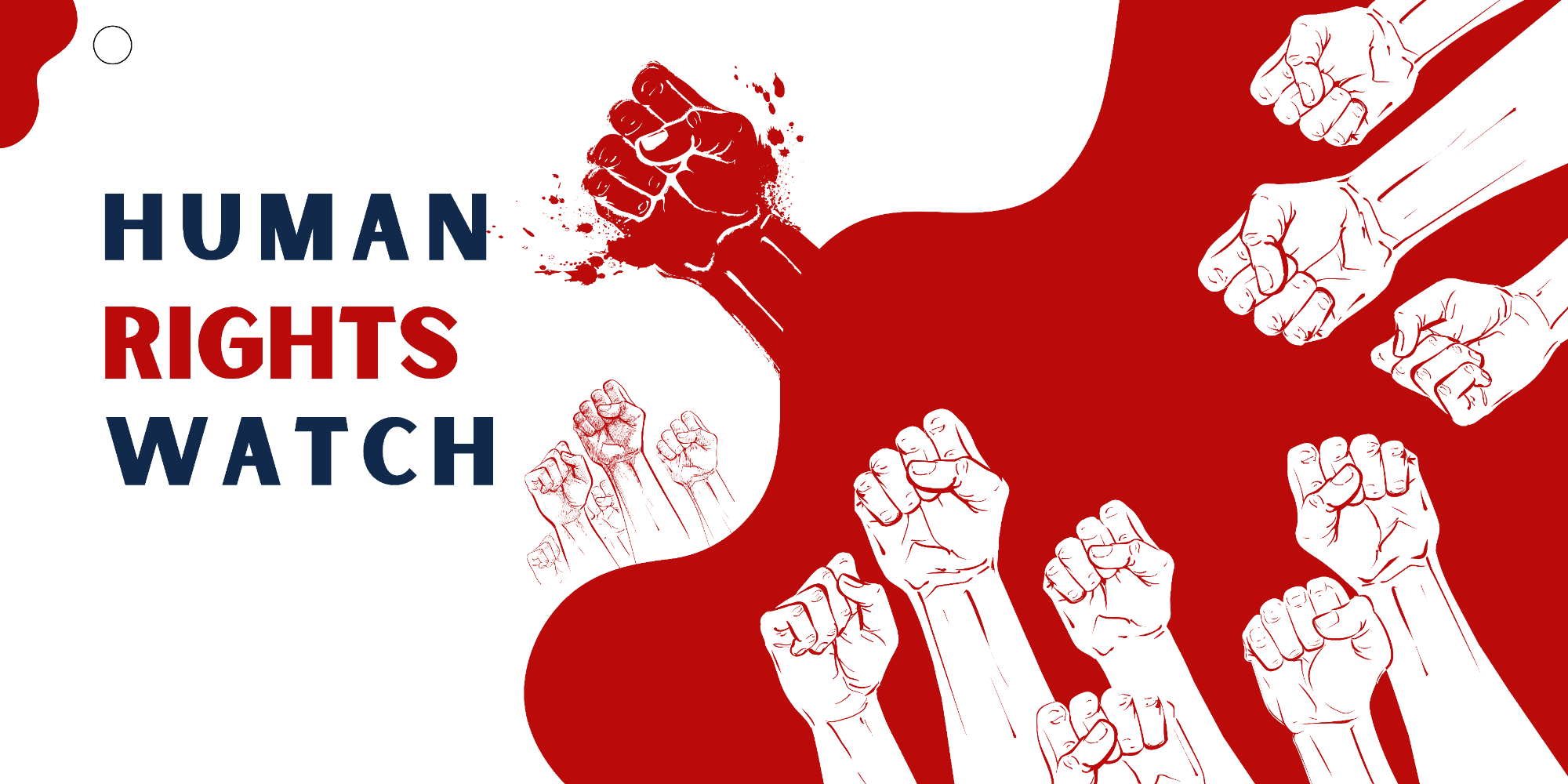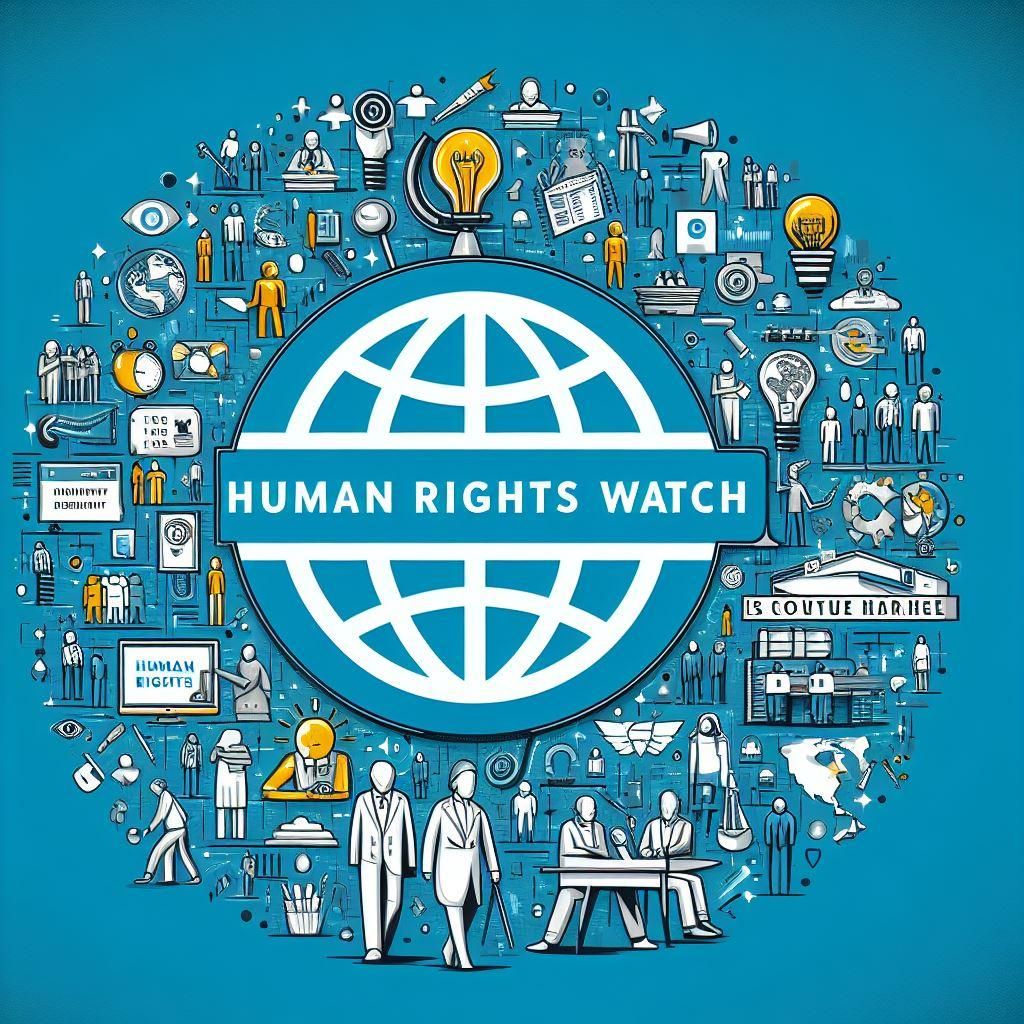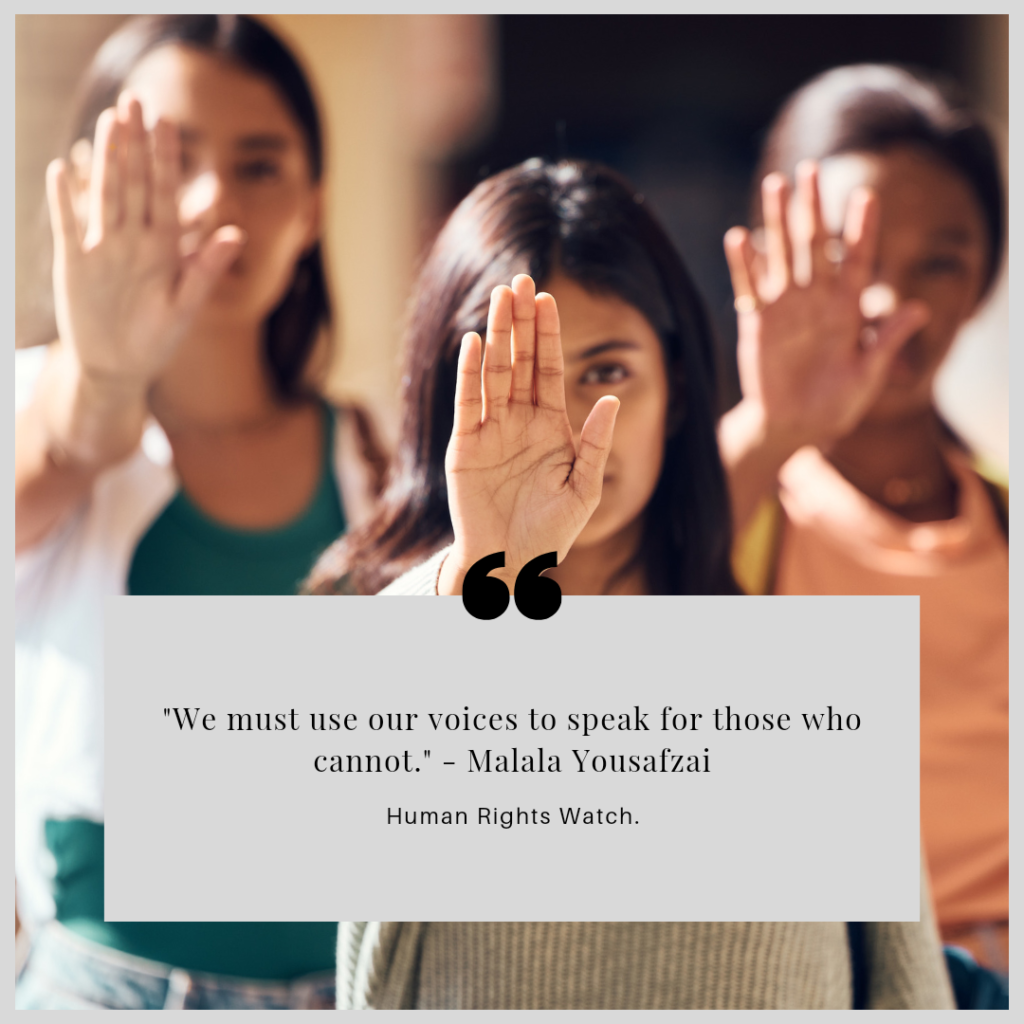
Is Human Rights Watch Legit? An In-Depth Look at a Renowned Human Rights Organization
Is Human Rights Watch Legit? An In-Depth Look at a Renowned Human Rights Organization
Human Rights Watch (HRW) is one of the few organisations that carries as much weight and influence as it does when it comes to fighting for human rights and holding governments and organisations accountable for breaches of such rights. It is natural to doubt the legitimacy and credibility of any group, including Human Rights Watch (HRW), given the large number of organisations that claim to be advocates for a variety of issues. In this extensive post, we will go deeply into the history, mission, and operations of Human Rights Watch. We will also investigate its financing sources, methodology, and influence in order to evaluate whether or not it is, in fact, a legitimate and trustworthy organisation.

What is Human Rights Watch?
As a non-governmental organisation (NGO) that operates on a global scale, Human Rights Watch is committed to conducting investigations and bringing to light violations of human rights all over the world. Since its founding in 1978, Human Rights Watch (HRW) has been operating freely, without any affiliation to any political parties or governments. Individuals, regardless of their nationality, ethnicity, religious affiliation, or political affiliation, are the target of its mission, which is to preserve the fundamental rights and freedoms of individuals.
In its most fundamental sense, Human Rights Watch seeks to fulfil the role of a watchdog by shedding light on breaches of human rights and holding those responsible accountable for their actions. This is accomplished through thorough research, advocacy, and public awareness campaigns.

Investigating Human Rights Watch’s Legitimacy
To determine the legitimacy of Human Rights Watch, it’s paramount to examine various aspects of the organization, including its funding sources, research methodology, and track record of impact.
- Funding and Financial Transparency
One of the most important aspects that contribute to the legitimacy of an organisation is the transparency of its financial situation and the sources of its support. Human Rights Watch receives money from a wide variety of sources, the most majority of which comes from private sources such as individual contributors and foundations. The organization’s income comes from a combination of these sources. A lesser fraction, perhaps ten percent, is obtained from sources within the government.
The Human Rights Watch (HRW) organisation adheres to a stringent policy that prohibits it from taking donations from governments or companies that have the potential to affect its advocacy or research endeavours. Furthermore, the organisation is committed to adhering to stringent standards of financial openness, as evidenced by the fact that it publishes its annual reports and audited financial statements on its organisational website.
- Research Methodology and Impartiality
One of the most important aspects of Human Rights Watch’s credibility and legitimacy is the organization’s dedication to maintaining neutrality, impartiality and its rigorous research methods. It is the responsibility of the organisation staff of professional researchers, lawyers, and other specialists, who are employed by the organisation to investigate human rights breaches in depth and on the ground.
In order to conduct its study, Human Rights Watch (HRW) scientifically collects a substantial amount of paperwork, conducts interviews with victims and witnesses, and cross-references information obtained from additional sources. Moreover, in order to guarantee a complete grasp of the issues at hand, the organisation collaborates with governments, armed groups, people around and other relevant parties.
Keeping a strong policy of non-partisanship, Human Rights Watch strictly avoids any adherence to political goals or ideas. This is an important and core aspect of the organization’s practice. This organization’s only mission is to defend and promote human rights, regardless of who is responsible for the violations or who is the victim of such violations.
Infrequent publication of in-depth reports, briefings, and other materials that highlight breaches of human rights and call for action is an essential part of the advocacy work that Human Rights Watch (HRW) does. For the purpose of increasing awareness, influencing policy choices, and holding abusers accountable, these publications serve as essential tools!
- Impact and Influence
Human Rights Watch’s track record of impact and influence is perhaps the most persuasive proof that demonstrates the organization’s legitimacy. The investigations and reports that Human Rights Watch (HRW) has conducted over the years have been extremely important in bringing to light violations of human rights, affecting public conversation, and influencing policy decisions at the highest levels throughout the world.
By way of illustration, Human Rights Watch’s (HRW) reportage on the crimes that were committed during the Rwandan genocide in 1994 contributed to the mobilisation of world attention and action. In a similar vein, the work that the organisation has done on topics such as child soldiers, torture, and discrimination against marginalised people has enhanced awareness on a worldwide scale and contributed to changes in policy.
In addition, Human Rights Watch has been a proponent of the formation of international institutions to redress violations of human rights. These mechanisms include the International Criminal Court and a number of different United Nations bodies.
Addressing Criticisms and Controversies
Despite its track record and commitment to impartiality, Human Rights Watch has faced its share of criticisms and controversies over the years. Some of the most notable criticisms include:
- Alleged Bias and Agenda-Driven Reporting
Critics, particularly those from certain governments or political factions, have accused Human Rights Watch of harboring biases and pursuing specific political agendas in its reporting. However, HRW maintains that its research and findings are based solely on objective evidence and adherence to international human rights law. - Selective Focus on Certain Countries or Issues
There have been allegations that Human Rights Watch disproportionately focuses on certain countries or regions while overlooking human rights violations elsewhere. The organization acknowledges the limitations of its resources and capacity, prioritizing investigations based on the severity and scale of the violations. - Reliance on External Funding Sources
Some critics have questioned the potential influence of HRW’s funding sources, particularly from governments and foundations, on its research and advocacy efforts. However, as mentioned earlier, the organization maintains strict policies to ensure its independence and impartiality.
In spite of the fact that these criticisms and debates could be considered legitimate points of discussion, they do not in and of themselves undermine the legitimacy of Human Rights Watch as an organisation. These concerns have been addressed on a consistent basis by the organisation through the implementation of transparent practices, rigorous methodologies, and an unwavering dedication to the task at hand.

Conclusion: Human Rights Watch – A Legitimate Force for Human Rights
Now, after a complete and comprehensive in-depth analysis, it is perfectly evident that Human Rights Watch is really a totally legitimate and highly trustworthy organisation that is sincerely committed to diligently safeguarding and persistently furthering human rights on a global scale. This is the conclusion that can be drawn from the findings of the investigation. The organization’s impressive and laudable track record, diverse array of funding sources, rigorous and painstaking research methodology, significant and far-reaching impact, and transparent and forthright responses to criticism were all components that we meticulously investigated in order to arrive at this well-founded conclusion.
At the same time, it is essential to recognise that no organisation, regardless of how closely it adheres to its principles, is completely flawless. On the other hand, Human Rights Watch has established itself as a voice that is acknowledged, authoritative, and influential in the field of human rights, which is an extremely important field. It is because of their unyielding and unyielding commitment to fairness, precise and exacting research standards, and complete financial transparency that they have been able to accomplish this. Furthermore, the strenuous lobbying efforts and powerful investigations that Human Rights Watch (HRW) has conducted have proven to be extremely important. We feel that criticism that is both informative and helpful is beneficial to pioneering organisations like this one in order to keep them on the correct road.
As the globe continues to struggle with widespread violations of human rights and terrible injustices, the indispensable function of organisations like Human Rights Watch, which are always working to prevent these atrocities, is becoming increasingly important in the turbulent environment of today. In the process of vigilantly safeguarding the fundamental rights and intrinsic dignity of people all over the world, Human Rights Watch (HRW) unquestionably performs a vital role by shedding light on abuses, bravely holding criminals accountable, and effectively advocating for beneficial policy changes.











